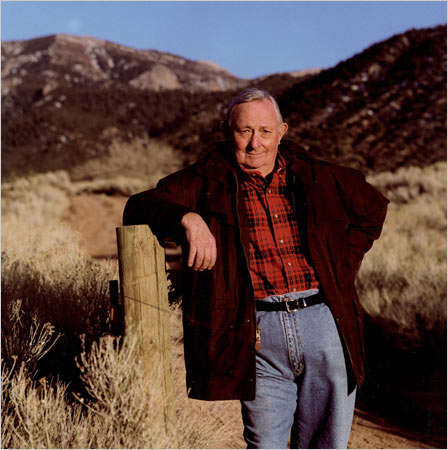“As the day of the great convocation drew nigh, the proclamations of high churchmen rang out across the Land…”
Yes, it’s getting intense, even a bit medieval, if you like Bishop Finn’s Muslim crusader analogy. The Globe’s Michael Paulson has a very good and comprehensive take this morning.
While the intensity of the election battle and the role of abortion and religion (namely, the Catholic Church) is undisputed, the number of “single-issue” bishops (as the “abortion-trumps-all-vote-GOP” prelates are termed) is all over the map.
Rocco updates his original “guesstimate” of 50 bishops with a detailed reckoning–and raises the total to more than 60. He lists them, with links to relevant documents for those who wish to peruse. At the RNS blog, Dan Burke notes that one pro-life activist makes that 89 bishops (out of nearly 200 heads of dioceses).
These are judgment calls, and tough to nail down. At CWNews, Phil Lawler cites Bishop Cupich’s America essay about racism as a direct contrast to Bishop Gracida’s blast at “Barack Hussein Obama.”
That seems like a stretch, to say the least. But he also portrays an apparently real division between the bishops of Arizona:
“The contrasting statements by American bishops has produced a striking contrast in the state of Arizona, where Bishop Thomas Olmstead of Phoenix has produced a hard-hitting booklet entitled Catholics in the Public Square, arguing that abortion is the paramount issue in this campaign, and distributed over 100,000 copies to parishioners in his diocese. In neighboring Tucson, Bishop Gerald Kicanas has not given permission for pro-life activists to hand out Bishop Olmsted’s booklet in parishes…”
As an antidote to all this, try Baltimore Archbishop Edwin O’Brien’s pre-election column in this week’s archdiocesan paper. Baltimore Archbishop Edwin O’Brien’s election eve column, which recognizes the division within the hierarchy…but he hews to first principles, takes a serious and sensitive approach, and says he will not engage in public battles over reception of the Eucharist:
Our Conference of Catholic Bishops has agreed overwhelmingly that there can be differing pastoral approaches at this critically teachable moment. Some American bishops, after engaging public officeholders to no avail on this serious issue, have opted to forbid their reception of the Eucharist within their jurisdictions. In so doing they are within their rights, and I respect their decision. However, and upon soul-searching reflection and prayer, I have decided that I will not take this public step. Let me note the following points in support of what I pray is a prudent decision on my part:
1. In contrast to and in spite of the measured tones of several bishops who have made this decision, many of the letters I have received and advertisements I have seen calling for this penalty reflect an uncharitable anger and even a vindictiveness that undermine the healing intent of those bishops’ decrees.
2. At this stage, the divisive result of such an action in the Archdiocese of Baltimore both within and outside the Catholic community would, in my opinion, prove counterproductive to our evangelizing efforts and to our overall unity.
3. In this unique and highly charged atmosphere, it is likely inevitable that such a step, in spite of any appropriate attempts on our part to explain it, would be distorted as constituting an unwise and unwarranted intrusion of the Church in the political life of the community. It might even undermine pro-life politicians, suggesting that their position is simply a consequence of pressure from the institutional Church, rather than the result of the Church’s clear obligation to defend the dignity of every human life.
How grateful we must be to those public figures (a good many of whom are not Catholic) who often put their careers on the line in defense of innocent human life. As for those Catholics unwilling to defend life, I would hope that prayer and the graces that would accompany discussion and persuasion would help bring about a conversion of mind and heart. We ask no politician to do anything unconstitutional or immoral in pursuing legal steps to avoid the killing of innocent human life and in defending women too often victimized and traumatized by a powerful abortion industry.
We ask all our public servants to reflect upon the words of St. Thomas More, the patron saint of those who hold public office. From the gallows which would soon claim his life, he declared that he would die “the king’s good servant, but God’s first.” Whose servant, my admirable friends in public life, do you claim to be?
As a bishop of the Catholic Church, I must be authoritative in explaining the Church’s 2,000-year teaching on a matter as basic as life and death. I pledge not to be confrontational, however, and would welcome a private discussion of this message with those who seek or hold public office.
Finally, I ask for your prayer for me and our Conference of Bishops as we meet here in plenary session next month in efforts to provide just and effective moral guidance for our people and our leaders whom we seek to serve.
Whatever the reality, the post-election hierarchical convo in Baltimore should be interesting.

